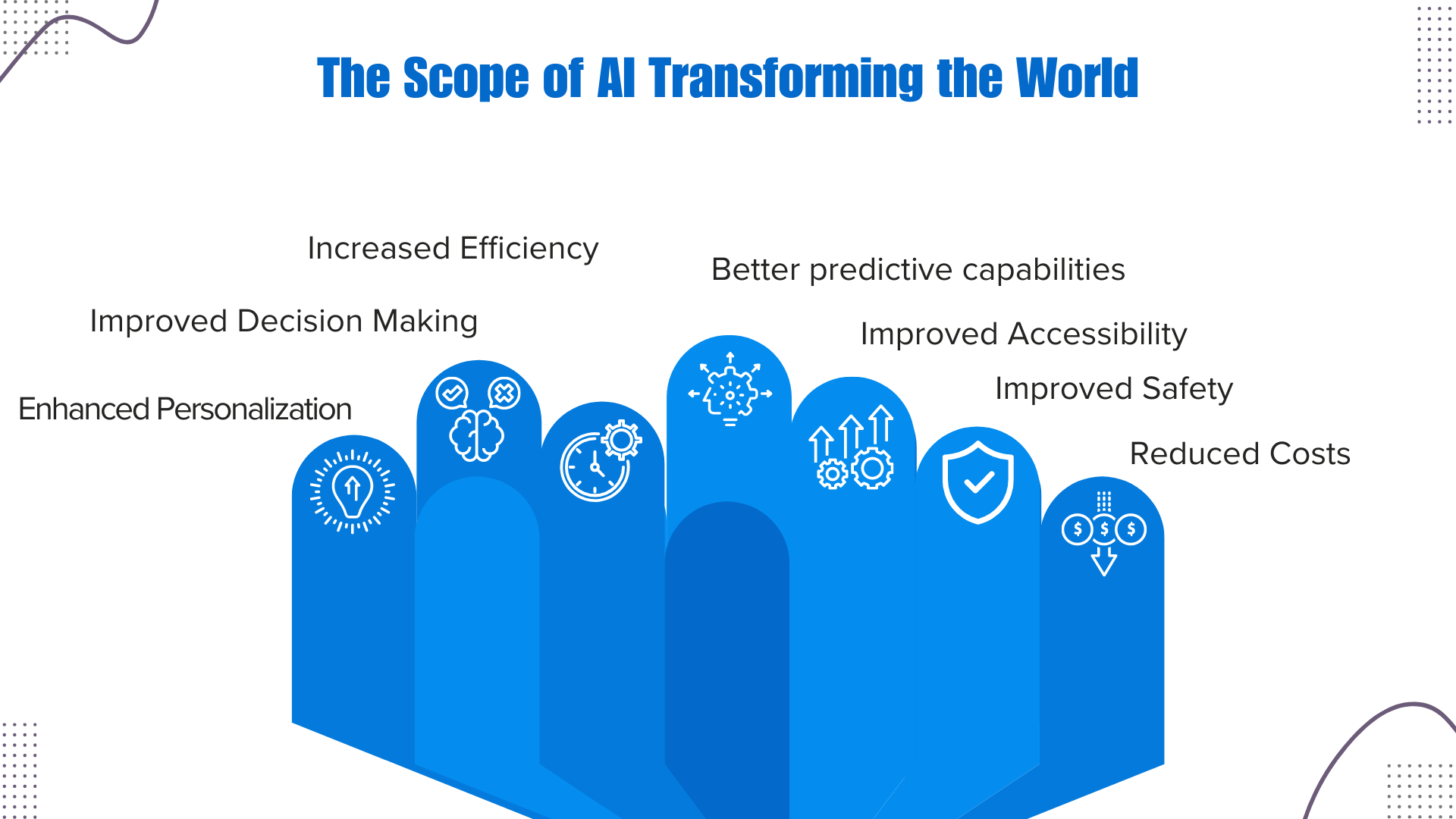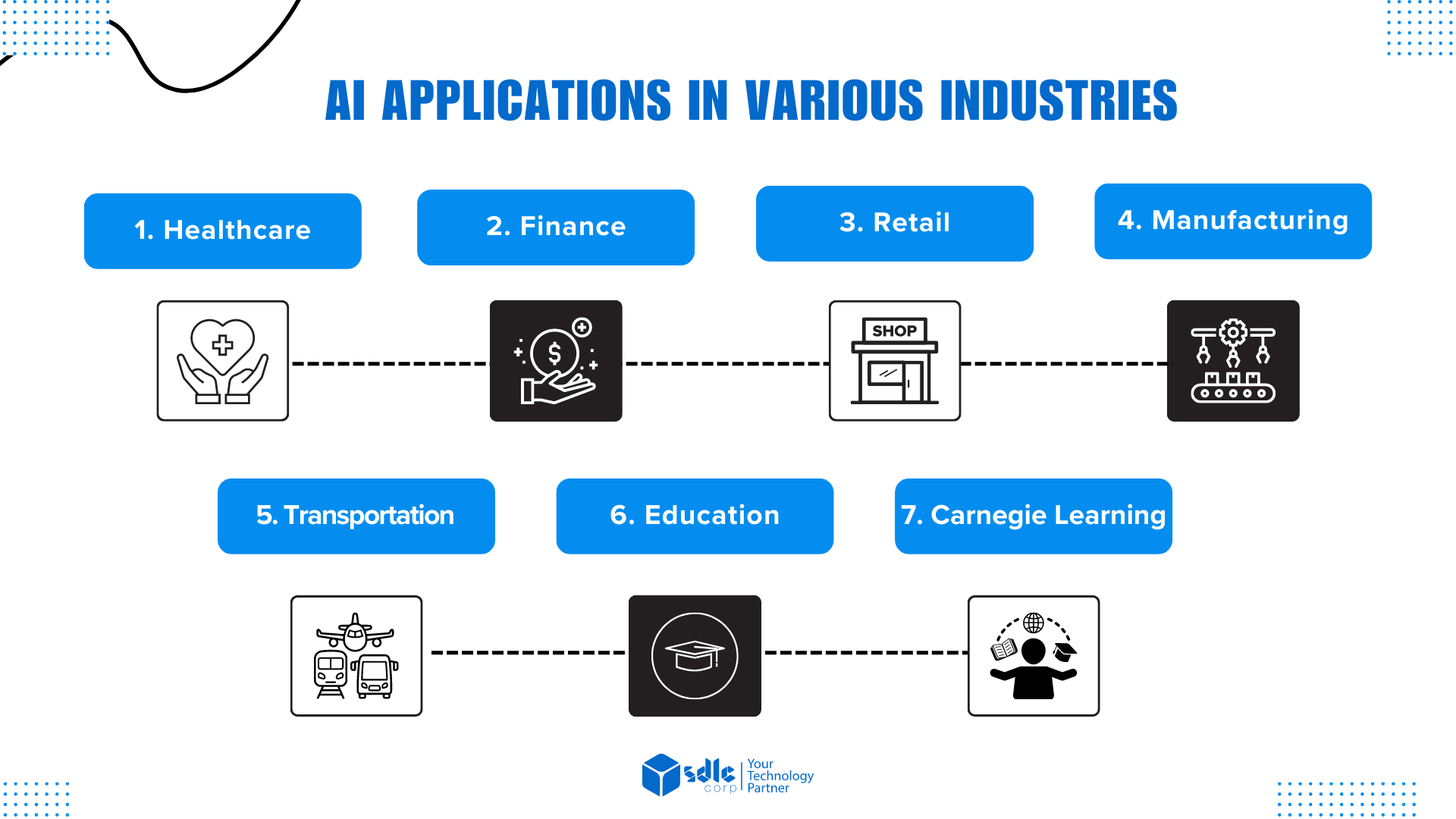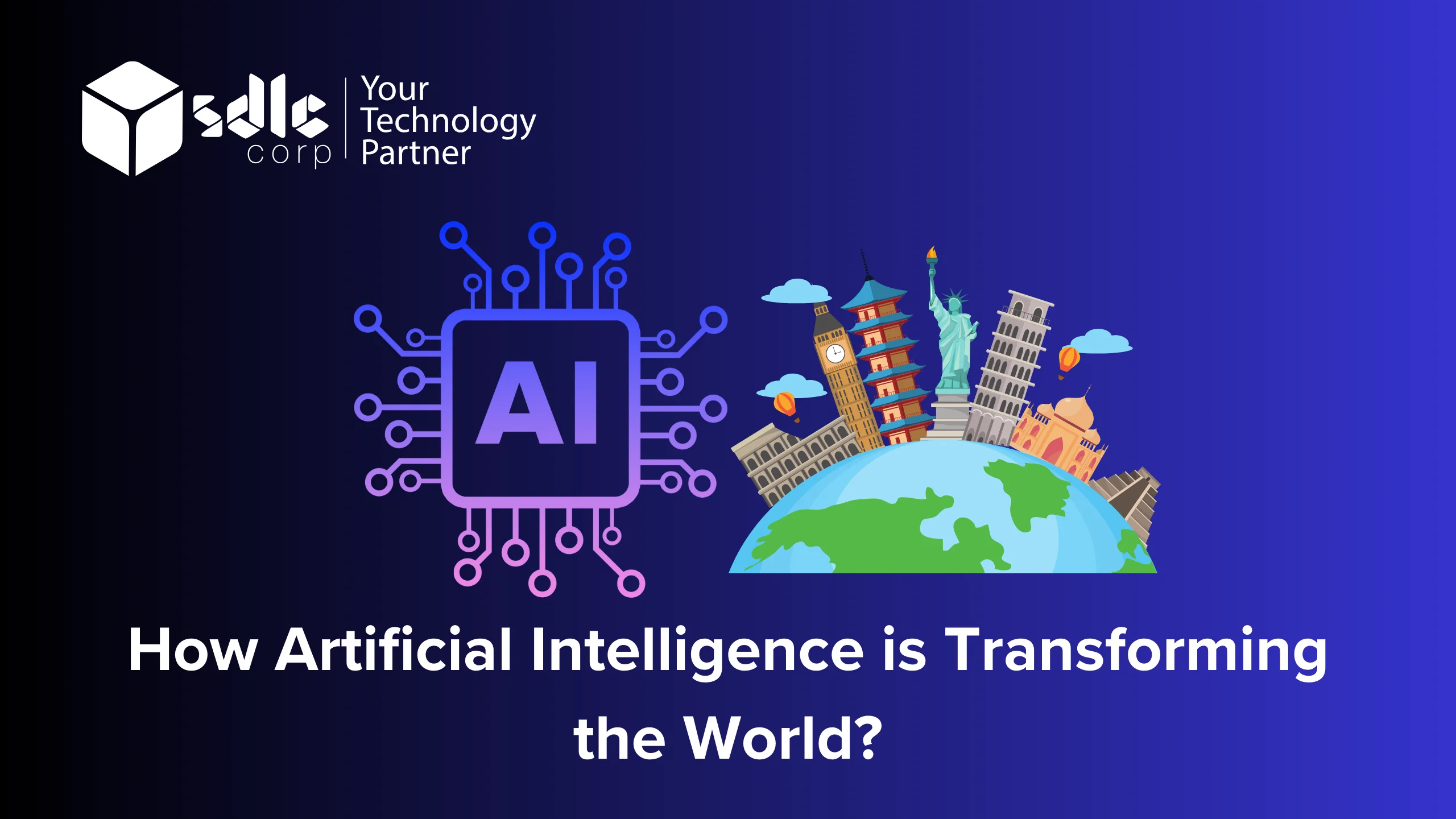How Artificial Intelligence is transforming the world
Introduction
Artificial Intelligence (AI) is not just a fancy term you hear in tech circles, it’s a technology that’s changing the world around us. From making everyday tasks easier to solving big problems, AI is transforming industries and shaping the future. The impact of AI goes beyond the tech world, affecting healthcare, finance, education, entertainment, and more. Companies, including AI development firms, are driving these changes by offering specialized AI development services that help businesses embrace this technology. Let’s take a closer look at how AI is making a difference in various fields.
Explore AI's Impact! Transforming the World!

AI in Healthcare: Changing the Way We Get Treated
In healthcare, AI is more than just a tool; it’s a game-changer. Think about how doctors diagnose illnesses. In the past, they had to rely mainly on their own expertise and test results. Now, AI can help spot problems in medical images that even experienced doctors might miss. For example, it can find early signs of cancer in scans, which gives patients a much better chance of beating the disease.
AI is also being used to create personalized treatment plans. Instead of giving everyone the same treatment, doctors can now use AI to analyze each person’s unique data like their medical history and lifestyle habits and suggest a plan that works best for them. Hospitals and clinics often work with AI development companies to set up these systems, or they hire AI developers to build custom solutions that suit their needs.
And when it comes to developing new medicines, AI speeds up the process. What used to take years of trial and error can now be done in a matter of months. AI runs through thousands of molecular combinations to find the best candidates for new drugs, saving valuable time and resources.
The Scope of AI Transforming the World
In finance, AI is taking on a big role in making things safer and more efficient. For instance, it’s great at spotting fraud. AI can scan through thousands of transactions in seconds and flag anything unusual, which helps banks and businesses protect their customers.
When it comes to the stock market, AI doesn’t just follow trends; it tries to predict them. Automated trading systems, powered by AI, analyze tons of data to find patterns and execute trades faster than any human could. This has made the stock market more accessible to individual investors as well.
Customer service in finance has also gotten a boost from AI. Virtual assistants and chatbots now handle customer inquiries, making banking more convenient. Plus, with AI’s help, financial companies can better assess risks and manage credit, ensuring safer investments and lending practices. Often, financial institutions work with AI development agencies to create these advanced systems.

AI in Transportation: More Than Just Self-Driving Cars
When people think about AI in transportation, self-driving cars probably come to mind first and it’s true that they’re one of the most exciting uses of AI. Companies like Tesla and Waymo are working hard to make cars that drive themselves safely. This isn’t just about making driving easier; it could also significantly reduce the number of accidents caused by human error.
But AI’s impact on transportation goes beyond cars. In cities, AI is being used to manage traffic more effectively by adjusting traffic lights based on real-time conditions, which can help reduce congestion and make commutes quicker. For logistics companies, AI helps manage fleets by predicting when a truck might need maintenance before it breaks down, which saves time and money. Working with an AI development company can help cities and businesses implement these smart transportation solutions.
Explore AI's Impact! Transforming the World!

AI in Retail and E-commerce: Personalizing the Shopping Experience
In retail, AI helps make shopping more personal and enjoyable. Imagine browsing an online store where the product suggestions seem to be exactly what you were looking for. That’s AI at work, analyzing your browsing habits, past purchases, and even what’s trending to recommend products you’ll love.
AI is also changing how stores manage their stock. With inventory management, AI can predict which products will sell out and which ones might not, so stores can stock up or cut back accordingly. Even customer service has improved with AI-powered chatbots that can help you find what you’re looking for or answer your questions instantly.
For businesses looking to stay ahead, partnering with an AI development company can help them offer the kind of smart shopping experiences customers expect. Companies without in-house expertise often hire AI developers to build these custom solutions.
AI Applications in Various Industries

AI in Education: Helping Students Learn Better
Education is another field where AI is making a big impact. Adaptive learning platforms use AI to adjust lessons based on how well a student is doing. If someone is struggling with a topic, the system provides extra help; if they’re excelling, it moves them on to the next level. This way, each student learns at their own pace, making education more effective.
AI also helps teachers by taking over some of the time-consuming tasks like grading. Automated grading systems can handle multiple-choice tests and even some essay scoring, freeing up educators to focus more on teaching.
To make these learning experiences possible, schools and online learning platforms often use specialized AI development services to create adaptive systems. In some cases, they’ll hire AI developers who can build or customize tools that fit their educational programs.
AI in Manufacturing: Smarter, More Efficient Factories
Manufacturing may seem like a field that’s all about machinery and manual labor, but AI is playing a big role here too. One way AI helps is through predictive maintenance. Machines equipped with AI can predict when they might break down and alert technicians to fix problems before they happen, which helps avoid costly downtime.
AI is also used for quality control. It can inspect products at an incredible speed, catching tiny defects that human inspectors might miss. And in the supply chain, AI helps manufacturers manage logistics more efficiently, ensuring deliveries are on time and inventory levels are just right.
Many manufacturers turn to AI development companies to help implement these solutions, making their factories smarter and more efficient.
AI in Entertainment: Bringing New Experiences to Life
AI isn’t just for crunching numbers or diagnosing diseases it’s also being used in the creative world. For example, streaming services like Netflix use AI to suggest shows or movies based on what you’ve watched before. The goal is to make it feel like the platform knows your taste.
But it goes further than that. There are tools that use AI to help with automated content creation, such as writing articles, editing videos, or even composing music. It’s not about replacing human creators but giving them tools to bring their ideas to life more easily. Companies that want to use AI for content creation often work with AI development agencies to build the right tools for their needs.
Ethical Concerns and Challenges: The Risks We Need to Address
With all the benefits AI brings, there are also some important challenges. One big concern is data privacy. AI systems need a lot of data to work well, but collecting and storing this data comes with risks, especially if it’s not handled carefully.
Algorithmic bias is another issue. If AI systems are trained on biased data, they can make unfair decisions, like discriminating against certain groups of people in hiring or lending. This shows that even advanced AI isn’t perfect, and it’s important to keep improving it.
Finally, there’s the fear of job loss. As AI takes over more tasks, some people worry about losing their jobs. However, it also creates new opportunities, especially for those who are open to learning new skills. Companies offering AI development services often work on solutions that address these ethical concerns, ensuring that AI is used responsibly.
Artificial Intelligence Services

Conclusion
Artificial Intelligence is reshaping our world, from healthcare to finance and beyond. With its growing impact, many businesses are turning to AI development services to stay competitive and drive innovation. As we continue to integrate AI into our lives, it’s important to address challenges like privacy and fairness. By embracing responsible development practices, we can harness AI’s full potential to create a smarter, more connected future.















